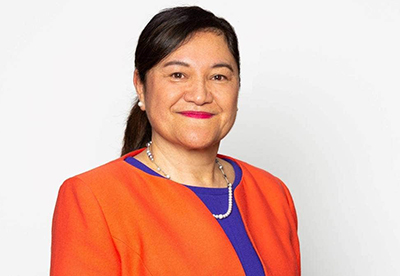Budget 2021: 'What is good for Māori is good for all of Aotearoa'
May 20, 2021
 Budget 2021 recognises that what is good for Māori is good for all of Aotearoa, with more investment being made specifically to address problems disproportionately faced by Māori.
Budget 2021 recognises that what is good for Māori is good for all of Aotearoa, with more investment being made specifically to address problems disproportionately faced by Māori.
There will no doubt be some ugly backlash against this from people who don’t want to see equity, but this is the future – a future for all people of Aotearoa.
With housing, health, and wellbeing some of the big headlines, I am certain that our whānau will be watching the next steps with great interest as, like myself, they want to see tangible changes as a result – changes that reduce inequity and lift their standard of living.
I have often said I am not interested in a pan-Māori approach, so it is encouraging to see the Government move along the pathway towards enabling iwi Māori to exercise our rangatiratanga and take responsibility for the wellbeing of our own whānau and hapū. This focus on self-determination is something that has anchored Ngāi Tahu for generations.
While the investment in establishing the Māori Health Authority means that, finally, we might start to get a health system for Māori, by Māori, I look forward to more detail that ensures iwi Māori have a place at the table in their takiwā (region).
I have seen people balking at the cost of this, while I would argue it is not enough. The injection of funding now to improve our healthcare model will save big money in the long run and reduce the pressure on our already stretched health system.
The increase to benefits to lift 33,000 tamariki (children) out of poverty is a great start. Benefits were slashed to the bone in 1991 and as a result whānau have struggled to thrive for far too long.
The Welfare Expert Advisory Group has said these increases are needed to ensure whānau on benefits have enough to live decent lives alongside the ever-increasing costs of living.
The number of whānau out of work has risen during the Covid-19 crisis, with Māori, and specifically rangatahi Māori (young), disproportionately impacted, so this additional income is very timely.
Too many whānau in Aotearoa live in overcrowded, under-insulated, and low-quality homes and are over-represented in the homeless population, so I welcome the commitment to housing in this Budget and look forward to seeing it developed further in future years.
The funding to build 1000 papakāinga and other Māori houses and repair a further 700 existing homes will make them cheaper to heat and mean fewer tamariki end up in hospital with preventable diseases such as rheumatic fever.
Ngāi Tahu also looks forward to continuing to partner with Government to get more whānau Māori into safe, dry homes through the $30m for iwi rōpū to accelerate housing projects. These measures are only a start, though. There will still be too few houses in Aotearoa and too many of the homes will be cold, unhealthy, and inefficient – especially those Māori live in.
I want to see future government investments build on this, and to grow their partnerships with iwi organisations to improve not only the supply of homes, but the quality of them. I would also like to see funding for innovative housing products and solutions, such as shared equity and large-scale rent-to-buy programmes to help move Māori whānau along the continuum of home ownership.
Our iwi has been actively working to address social and economic inequities for our whānau since our Treaty Settlement more than 20 years ago. In this time, we have invested approximately $200 million into health, wellbeing, and education initiatives.
As this Government continues its wellbeing approach with the release of Budget 2021, it is very clear to me that we are seeking the same outcomes. No Budget will solve all our problems, but this is another step towards honouring our Treaty partnerships and ensuring iwi Māori have a place at the table.